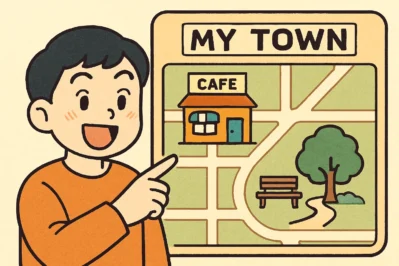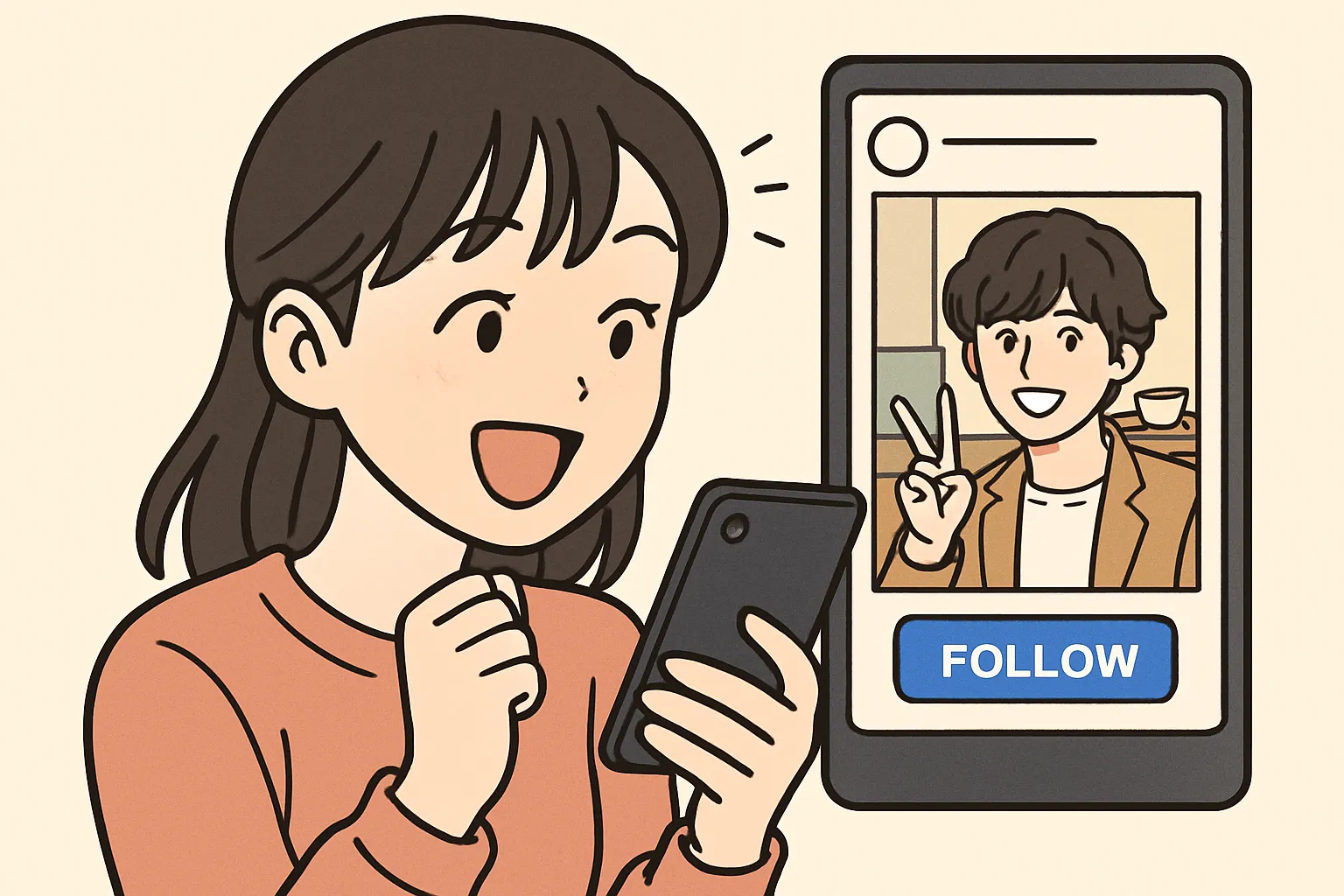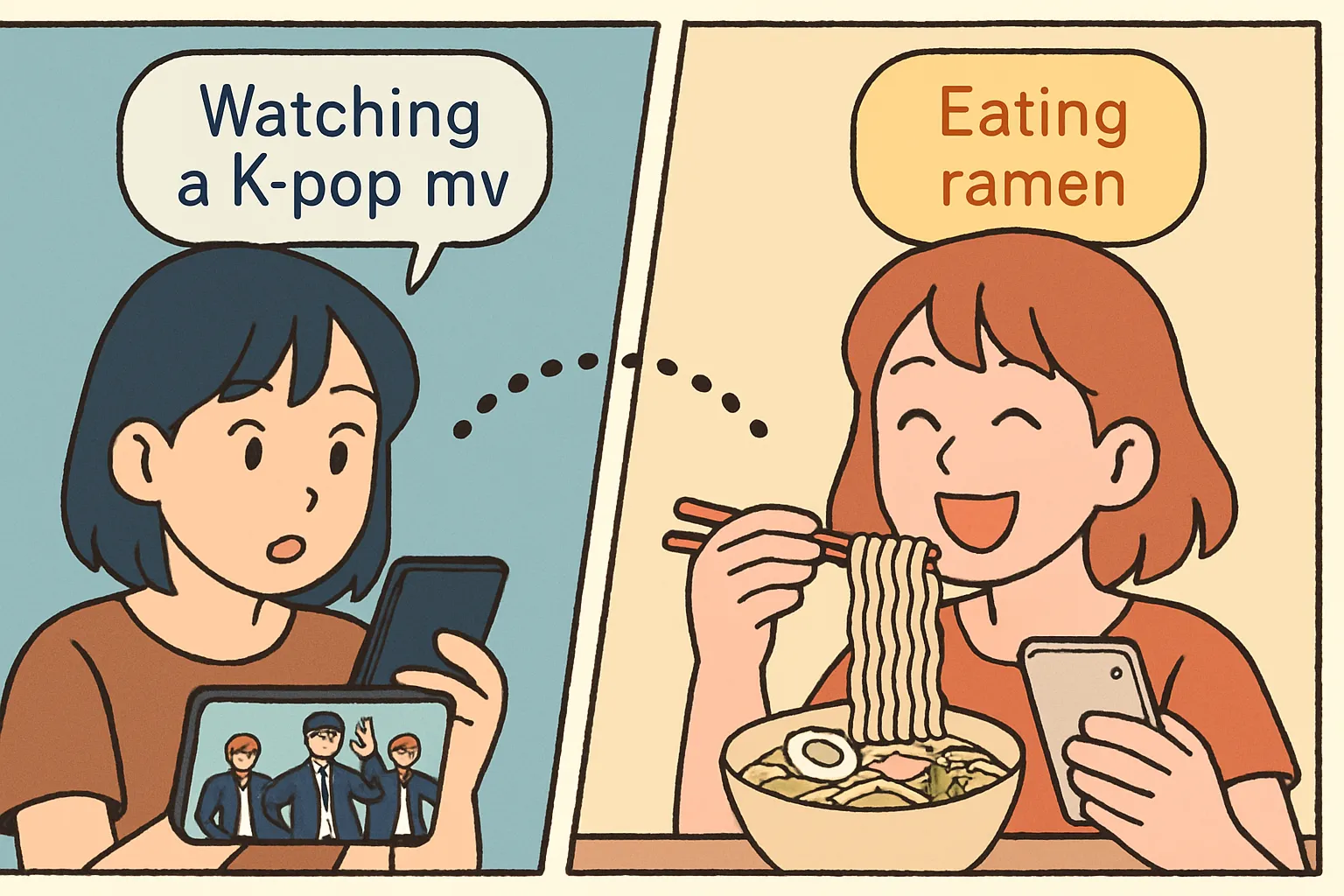My Awesome Town: Mastering Korean Possessives!
Hello! This is [Maeil Hangul], here to upgrade your Korean skills!
Have you ever wanted to proudly show your friend a cool spot and say, “This is my favorite cafe!” or “This is my town!”? Today, we’re going to learn exactly how to do that! We’ll explore how to show ownership in Korean.
These days in Korea, it’s a huge trend to post pictures of your local hidden gems on Instagram, a practice called ‘동네 자랑’ (dongne jarang), which means ‘bragging about my neighborhood’. After this lesson, you’ll be able to do it in Korean, too!
Let’s get started!
Core Expressions You Need to Know
Here are the essential ways to say “my” or show possession in Korean.
1. 제 (je) / 내 (nae)
- Pronunciation: [je] / [nae]
- English Meaning: My
- Detailed Explanation: This is the most direct way to say “my.” The one you choose depends on who you’re talking to!
- 제 (je): Use this in formal or polite situations. It’s perfect when talking to someone older, a teacher, or someone you’ve just met. It comes from 저 (jeo – the formal “I”) + 의 (ui – the possessive particle).
- 내 (nae): Use this in informal situations with close friends, family, or people younger than you. It comes from 나 (na – the informal “I”) + 의 (ui).
2. 의 (ui) – The Possessive Particle
- Pronunciation: [ui] or often sounds like [e]
- English Meaning: ‘s / of
- Detailed Explanation: This little particle works just like the apostrophe ‘s’ in English (e.g., “Anna’s book”). You add it after a noun to show that it belongs to that person or thing.
- Example: 리사의 책 (Lisa-ui chaek) = Lisa‘s book.
- Tip! In everyday conversation, especially after pronouns like 제 or 내, the
의is almost always dropped! So you say제 이름(je ireum), not저의 이름(jeo-ui ireum).
3. 우리 (uri)
- Pronunciation: [u-ri]
- English Meaning: Our / My
- Detailed Explanation: This is a very special and important word in Korean! While its direct translation is “our,” Koreans often use 우리 (uri) to mean “my” when talking about things that belong to a group or community they are part of. This includes family, school, country, and yes, your neighborhood! It expresses a warm feeling of belonging.
- 우리 집 (uri jip) = My house (literally “our house”)
- 우리 학교 (uri hakgyo) = My school (literally “our school”)
- 우리 동네 (uri dongne) = My neighborhood (literally “our neighborhood”)
Example Dialogue
Let’s see how these expressions are used in a real conversation. Two friends, A and B, are walking around B’s neighborhood.
A: 와, 이 공원 정말 예쁘다!
(Wa, i gong-won jeongmal yeppeuda!)
Wow, this park is so pretty!
B: 그치? 우리 동네에서 제일 인기 많은 곳이야.
(Geuchi? Uri dongne-eseo jeil ingi maneun gos-iya.)
I know, right? It’s the most popular spot in my neighborhood.
A: 그럼 네 집은 어디야?
(Geureom ne jib-eun eodi-ya?)
Then where is your house?
B: 내 집은 바로 저기. 이따가 제가 제일 좋아하는 카페에 가자!
(Nae jib-eun baro jeogi. Ittaga je-ga jeil joahaneun kape-e gaja!)
My house is right over there. Later, let’s go to my favorite cafe!
(Notice B uses 내 informally with a friend, but could also use 제 to emphasize “the cafe that I like.”)
Culture Tip & Trend Deep Dive
The “우리 (Uri)” Culture
You might be confused why someone would say “our mom” (우리 엄마) when they only have one mom. This is the heart of Korea’s “we-centric” culture!
Using 우리 (uri) instead of 내 (nae) or 제 (je) shows a strong sense of community and shared identity. When K-pop fans talk about their favorite idol, they say “우리 아이돌” (uri aidol – our idol). It makes them feel like part of a big family.
So, when you talk about your town, saying “우리 동네” (uri dongne) sounds much more natural and friendly to Koreans than “내 동네” (nae dongne). It shows that you are a proud member of that community, not just a person who lives there. Try it! It will make you sound like a local!
Wrap-up & Practice Time!
Great job today! You learned the difference between the formal 제 (je), the informal 내 (nae), and the very special Korean word 우리 (uri) to talk about things that are yours.
Now, let’s test your knowledge!
1. Fill in the blank: You are introducing yourself to your new boss. What should you say?
안녕하세요. (_____) 이름은 마이클입니다.
(Annyeonghaseyo. (_____) ireum-eun Maikeul-imnida.)A) 내 (nae)
B) 제 (je)
2. Quick Quiz: What’s the most natural way to say “My family” in Korean?
A) 우리 가족 (uri gajok)
B) 내 가족 (nae gajok)
(Answers: 1. B, 2. A)
Now it’s your turn! Try bragging about your neighborhood in the comments below using the expressions you learned today. For example: “우리 동네는 예쁜 카페가 많아요!” (My neighborhood has many pretty cafes!)
We can’t wait to read them






